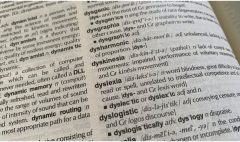Online Tutoring vs. Face-to-Face Tutoring: The 5 Differences
Online Tutoring vs. Face-to-Face Tutoring: The 5 Differences
The COVID-19 pandemic spurred families to look for alternative ways to keep their children up-to-date with their educational needs. Although online platforms have been around for many years, the second decade of the 21st century only accelerated their importance.
But, as the world opens up after the global scare, should we ditch online learning for more traditional face-to-face instruction? You might want to know the five key differences between online tutoring and face-to-face tutoring to help you decide.
1. Learning Environment
Face-to-face learning occurs in a physical environment (i.e., classroom, laboratory room, or demonstration room). The downside of such a setup is the distractions. Although tutors can control some environmental variables, other factors can interfere with the student’s learning.
Online tutoring occurs in virtual space. it could be asynchronous or non-simultaneous. The learner could be at the beach or backyard, while the tutor is in a small home office or living room. Moreover, online learners must supplement learning materials with well-researched resources.
2. Learning Pace
Face-to-face tutoring has a definite time frame, with the tutor setting the learning pace. On the other hand, online tutoring places the control of the learning pace on the learner. The student can work fast if they choose, or take their time to create more meaningful opportunities to master the course. Although there are deadlines, online tutoring allows flexibility in submissions.
3. Interactions
Face-to-face interactions can be restrictive. The tutor controls most of the discussion’s focus and flow. This observation is understandable because face-to-face interactions have time limitations. Tutors work with a definite schedule. Time constraints force learners to formulate answers to questions quickly. Intimidation can also occur.
Meanwhile, online tutoring allows learners to formulate well-researched and thought-out discussion responses. It is worth noting that online tutors only serve as facilitators. Learners are in control. They could coordinate with other online learners to make their responses more comprehensive.

4. Learning Assessments
Exams, tests, and other assessment activities in face-to-face tutoring have restrictions. For example, learners can only accomplish the evaluation within a given time frame (i.e., an hour) or a specific space (i.e., the classroom or laboratory room).
Although online learning assessments can also have a time component, the place parameter is non-existent. For example, learners can opt to answer the learning assessment tools in the bedroom, living room, or even while on vacation. In most scenarios, online learners enjoy greater freedom during assessments.
5. Tutor-Learner Relationship
Traditional face-to-face learning interactions have a more or less hierarchical structure. Tutors provide instruction, and students receive them with little to no opportunity for active participation. Most face-to-face learning methodologies look at learners in a “tabula rasa” state or a clean slate. Hence, tutors “spoon-feed” information to learners.
Meanwhile, online tutoring views the teacher-learner relationship as collaboration. It hinges on mutual trust, with the student benefiting from the tutor’s wealth of real-world experiences and professional competencies. The learner offers inputs to the learning program, allowing the tutor to customize sessions.
Online tutoring places the learner in control of their learning. On the other hand, tutors in a face-to-face setup have more control.
References
https://www3.sunybroome.edu/online/students/face-to-face-vs-online-instruction/
https://epale.ec.europa.eu/en/blog/5-key-differences-between-online-and-face-face-learning/
https://www.miamioh.edu/regionals/eccoe/news/2019/01/differences-between-f2f-and-online.html/












